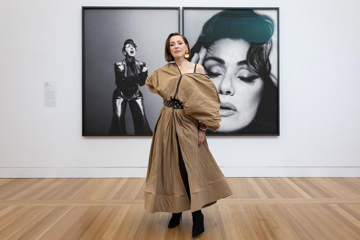Album Review: Arcade Fire - 'WE'
"They remain a band that deserves our attention."

Arcade Fire use the title of Yevgeny Zamyatin's seminal novel We as a starting point for what is clearly their pandemic record. Zamyatin’s futuristic dystopian tale influenced Orwell and Huxley. Prefiguring the worst of the Soviet era, the novel was published in 1924 in the States but was not cleared for publication in Russia till 1988.
A record that ponders a dystopian future and the end of the world feels like a glum prospect but we have lived through two years of a plague, are still grappling with the climate crisis, and trying to come to terms with scientific confirmation that we are living in the sixth mass species extinction in an era where a war in Europe and the threat of nuclear escalation has become all too real.
Surveying the current landscape in these sombre times is sobering. Arcade Fire seem to understand this and provide comfort by acknowledging what's happening around us and placing that concern in the context of instantly likeable pop songs that come with irresistible hooks and grandiloquent arrangements that wrap us up in the most sumptuous sounds they can deliver.
The album starts with the lyric ‘It's an age of doubt and I doubt we’ll figure it out’ and delivers random introspective musings about where we are collectively at before Age Of Anxiety I broadens out into an appealing pop groove. The buoyant vibes seem to contradict the gravity of the band’s subject matter but weirdly it's a juxtaposition that works and frees Arcade Fire from becoming too intellectual about things. They are not necessarily here to deliver pearls of wisdom but rather acknowledge what many may be thinking and feeling whilst revelling in this very particular moment. It's an approach that allows Régine Chassagne to nonchalantly sing, ‘Nothing ever can replace it / When it's gone, who can still taste it? / Going on this trip together,’ as Win Butler muses about the apocalypse on the electro disco styled Age Of Anxiety II (Rabbit Hole).
End Of The Empire I-IV is perhaps one of the many highlights of this album. Like Bohemian Rhapsody it feels like four songs mashed into one. The vocals bring to mind Bowie. It's an epic vision that shape shifts from folksy ballad to anthemic orchestral rock to ghostly piano melancholia as Butler weaves personal reflections on love while contemplating the end of literally everything. A powerful tune that pulls some powerful punches reminds us that despite missteps on Everything Now, they remain a band that deserves our attention.
Don't miss a beat with our FREE daily newsletter
The B-side of this album finds Arcade Fire attempting to inject some hope for the future into these tunes. The protagonist of Zamyatin's We discovers his soul and Butler sings, “Some people want the rock without the roll / But we all know, there’s no God without soul,” on Unconditional I (Lookout Kid). Love might save the day but Arcade Fire insinuate a message of hope suggesting that despite everything we at least have each other and only each other to blame.







